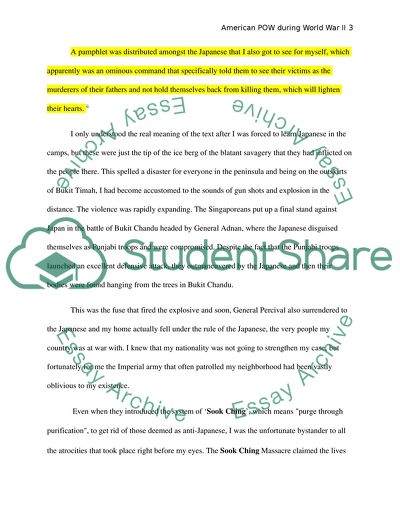Cite this document
(“An American Prisoner of War, World War II, Held by the Japanese Research Paper”, n.d.)
An American Prisoner of War, World War II, Held by the Japanese Research Paper. Retrieved from https://studentshare.org/history/1609960-an-american-prisoner-of-war-world-war-ii-held-by-the-japanese
An American Prisoner of War, World War II, Held by the Japanese Research Paper. Retrieved from https://studentshare.org/history/1609960-an-american-prisoner-of-war-world-war-ii-held-by-the-japanese
(An American Prisoner of War, World War II, Held by the Japanese Research Paper)
An American Prisoner of War, World War II, Held by the Japanese Research Paper. https://studentshare.org/history/1609960-an-american-prisoner-of-war-world-war-ii-held-by-the-japanese.
An American Prisoner of War, World War II, Held by the Japanese Research Paper. https://studentshare.org/history/1609960-an-american-prisoner-of-war-world-war-ii-held-by-the-japanese.
“An American Prisoner of War, World War II, Held by the Japanese Research Paper”, n.d. https://studentshare.org/history/1609960-an-american-prisoner-of-war-world-war-ii-held-by-the-japanese.


